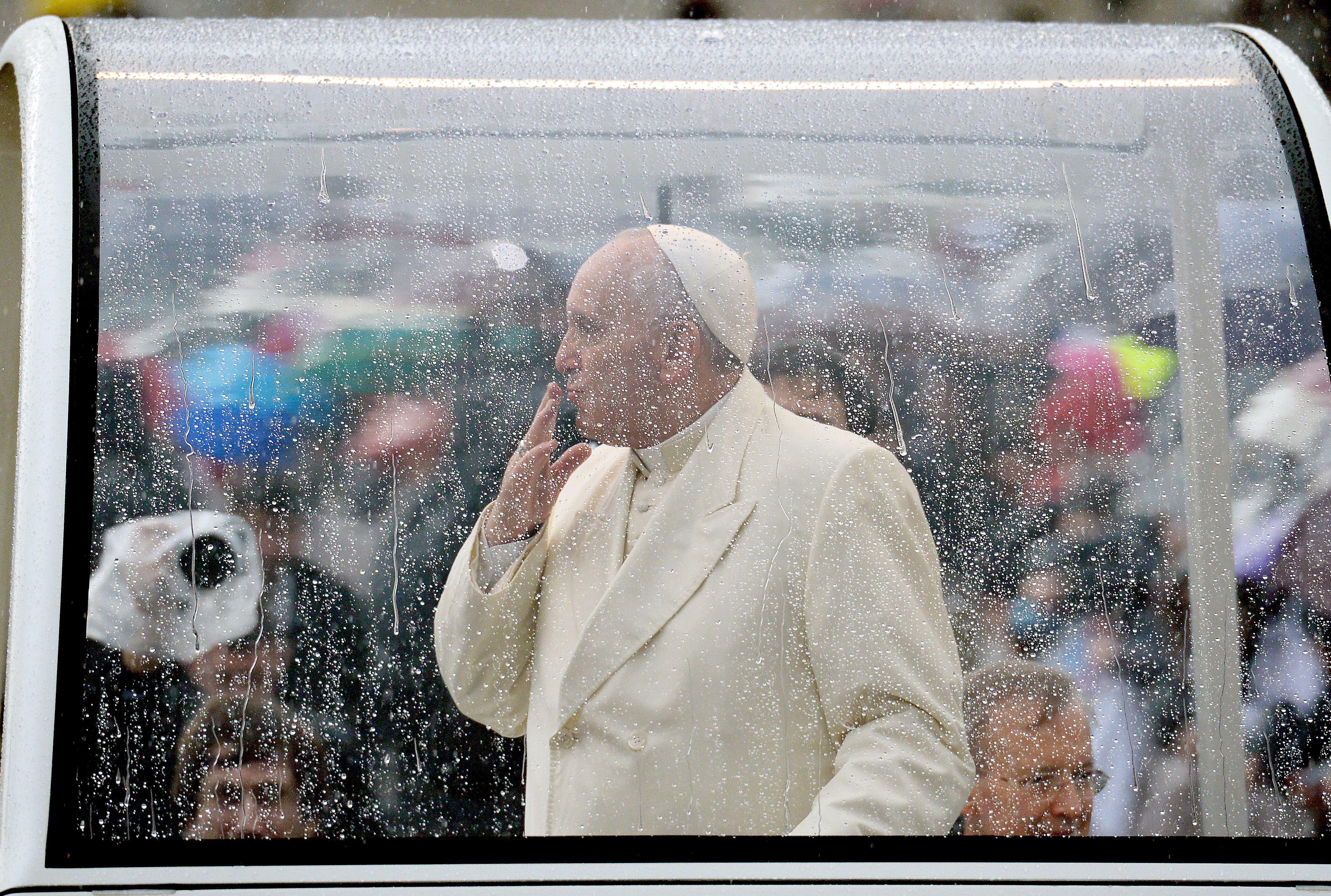On Wednesday, a U.N. human rights panel released its assessment of the Holy See’s responsibilities in the decadeslong child sex-abuse scandal and offered its recommendations to the Vatican on both how to prevent sex abuse in the future and how to deal responsibly with victims when it happens. The report is scathing in its judgment of the church’s past actions, but what is most startling is how aggressive the panel is in recommending that the church radically change its teachings and culture to prevent more child abuse.
Among the recommendations: “Abolish the discriminatory classification of children born out of wedlock as illegitimate children,” “support efforts at international level for the decriminalization of homosexuality,” “explicitly oppose all corporal punishment in childrearing,” “overcome all the barriers and taboos surrounding adolescent sexuality that hinder their access to sexual and reproductive information,” and “review its position on abortion which places obvious risks on the life and health of pregnant girls.” On that last one, the report mentioned the horrific story of that time the church excommunicated a woman for getting her 9-year-old daughter an abortion after the girl was raped by her stepfather.
The Vatican is not happy about this. On Friday, spokesman Federico Lombardi shot back, accusing the U.N. of being biased against the church. “More attention was devoted to well-known non-governmental organizations that are prejudiced against the Catholic Church and the Holy See than to the positions of the Holy See,” he complained, adding that the panel appears “to go beyond its competences and interfere in the doctrinal and moral positions of the Catholic Church.”
While it’s true that the report did take a (welcome) wide view of the sex-abuse scandal, the problem, if you want to call it a “problem,” is not that it’s biased against the church. It’s that it’s biased in favor of human rights and the well-being of adolescents and children. This is a human rights committee. When Catholic doctrine comes into conflict with human rights, it is the U.N.’s job to prioritize human rights. Since this is children we’re talking about here, it’s especially important that the U.N. not hold back on their support for human rights to protect the sensitivities of the Vatican.
While it may not be initially obvious why the U.N. recommended things like sex education, ending corporal punishment, or destigmatizing homosexuality, reading the entire report definitely helps clear things up. The point is to build a culture of respect for children that allows children to report sex abuse without fear of being punished or having their abusers protected. Beyond just a general cultural thing, there are direct pragmatic issues at stake. When gay kids, children of gay parents, and children of single mothers are considered less worthy than other children, you might as well paint a target on their back that says, “Child abusers, pick this one.” Gay kids may be in particular danger of same-sex child abuse, as some researchers have hypothesized that the social isolation of being gay in a homophobic environment may make kids more vulnerable to the manipulations of an abuser.
Sex education is a critical element, too. Abusers count on a culture of sexual shame and fear to keep kids from talking about what happened to them, and having sex education courses helps counter that by sending the signal that sex is a thing that it’s OK to talk about. If anything, the U.N. report was too conservative on this front, focusing on adolescents with its sex-ed recommendations. Ideally, a very basic form of sex education should start in kindergarten, where kids learn the names of body parts and what is and isn’t appropriate behavior. As Natalie Shure explained recently in the Atlantic, it’s hard for little kids to report sex abuse if they don’t have the vocabulary to talk about what happened. A little age-appropriate education can do a lot to prevent that from happening.
The Vatican’s reaction to this report, while not surprising, is incredibly disappointing. The entire reason that so much sex abuse happened for so long is that church leaders were more interested in protecting the church and its reputation than in protecting children from sexual abuse. This negative reaction is just more of the same, with the Catholic Church putting its doctrine and authority in front of the needs of its parishioners.
